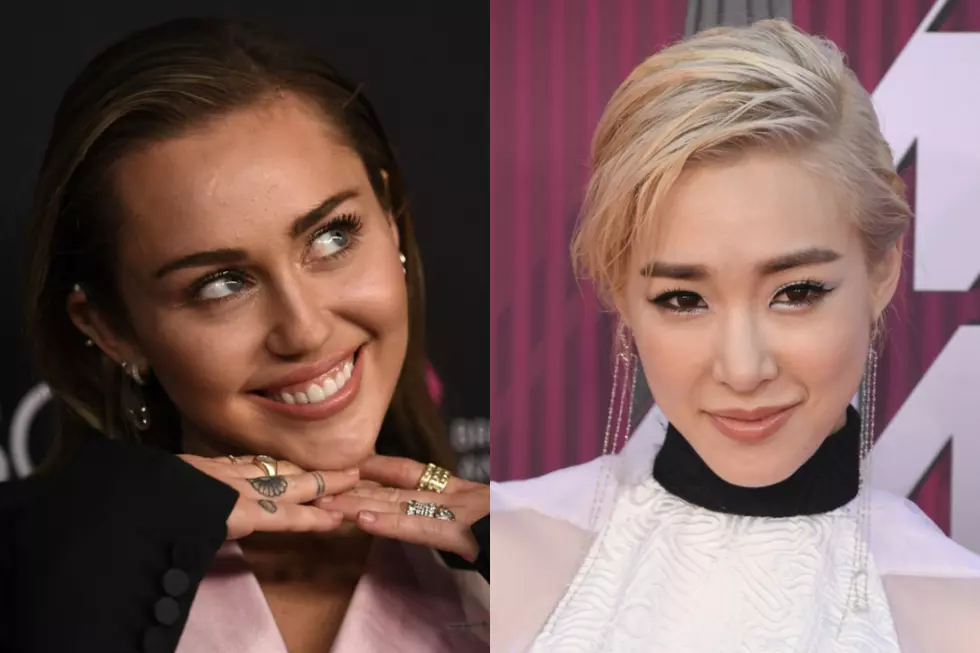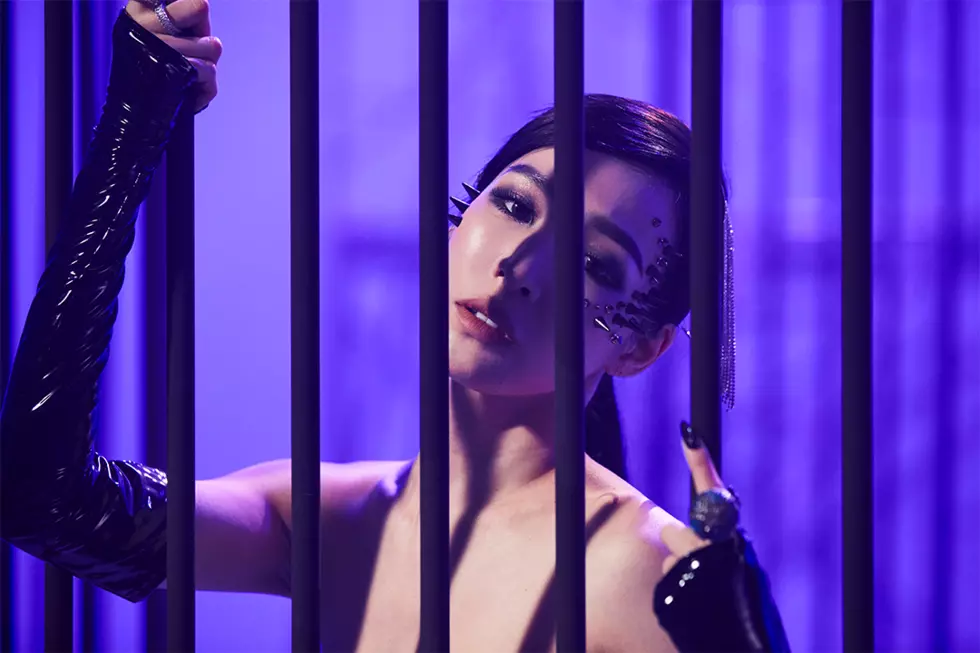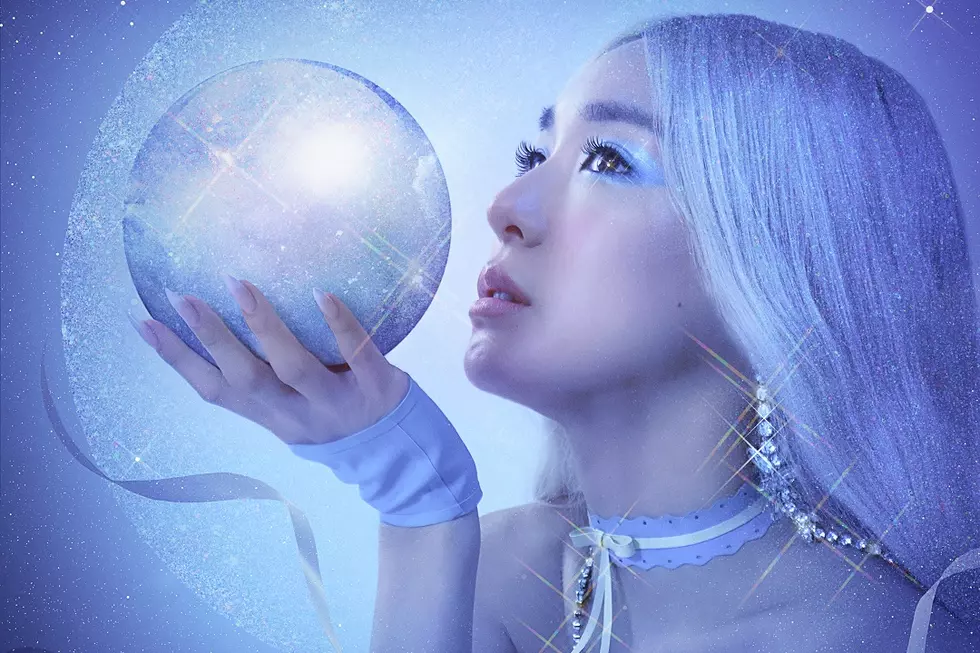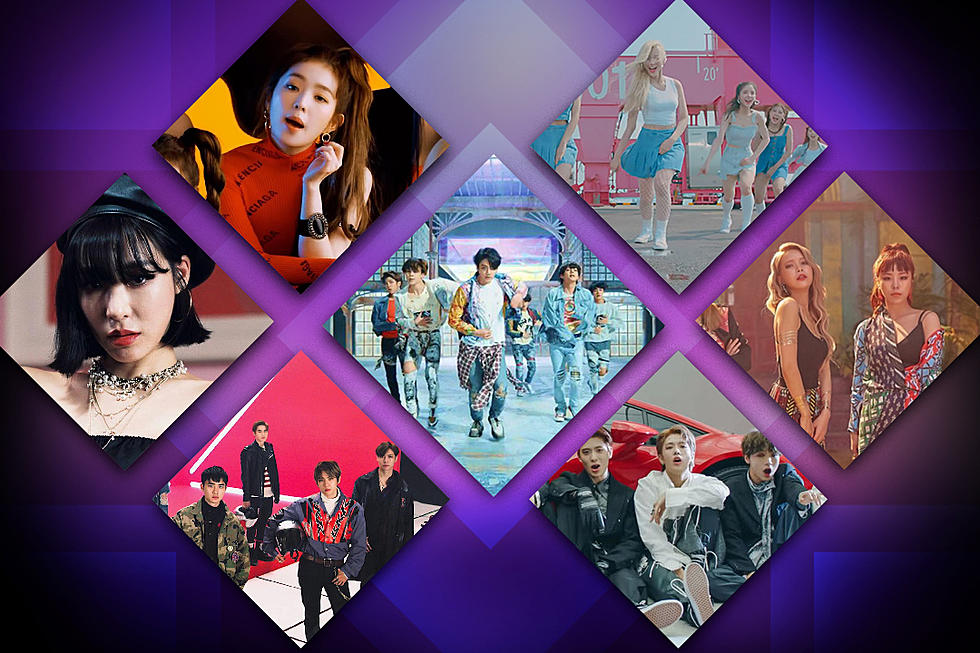
Tiffany Young’s ‘Lips on Lips’ EP Is a Sparkling, Self-Assured Reclamation of Power
It hasn't been an easy ride for Tiffany Young. The California native and K-pop idol-turned-breakout solo star was only 15 years old when, after being scouted at a singing competition, she was plucked from relative obscurity and brought to South Korea as a rookie in one of the world's most intense and exciting music industries. Within a few years, she was a megastar — but fame came at a price, and for one of East Asia's biggest stars, Young started to miss home and wondered if she could make the whole pop star thing work back in the States.
In 2017, after spending a decade churning out chart-toppers as a member of one of K-pop's leading groups, Girls' Generation, Young decided it was finally time to return to her roots. She was no longer afraid of pursuing her dreams — she had already achieved them alongside her GG sisters — and so it was time to chase a new one: solo pop stardom. On Feb. 22, 2019, after releasing a handful of critically acclaimed singles ("Over My Skin," "Teach You"), Young dropped her dazzling debut English language solo EP, Lips on Lips.
Young's intention to empower both herself and listeners is planted all throughout the mini album, like tiny seeds sprinkled across a fertile garden. The sweeping Fernando Garibay-produced "Born Again," finds the Korean-American performer rising from the ashes like a phoenix, singing about rebirth and growing from the challenges she's overcome, from moving to a foreign country as a young teen to overcoming her family's personal tragedies. It is, simply put, a stunning display of pop and personal prowess. Meanwhile, the bubbly titular track, while glistening with a romantic sheen on the outside, is at its core about unapologetically embracing one's fantasy. (The climactic kiss Young sings about on "Lips on Lips" is representative of passion as well as certain personal triumph.)
Similarly written about rising above the fray of life, "Flower," set to be released as the next single off the EP, is a big, pristine electro-pop anthem that wouldn't sound out of place on the Top 40, nestled between Selena Gomez's "Hands to Myself" and Lady Gaga's "The Cure." It's a lush, driving synth-pop treat that, despite its candy coating, packs a powerful message at its sweet center.
"Flowers represent a duality in my life: death and pain, as well as comfort and love through amazing times," Young said in a press release about the track. "I’ve smiled through some dark and painful moments in my life to then present myself poised and full of life like a flower. I wrote this song with the intention of comforting anyone listening to it, through their struggle and hard times so that I could be the flower to their pain."
On "Not Barbie," the artist sings about homogeneous beauty ideals and self-worth over a breezy turn-of-the-millennium pop soundscape—think plush synths, twinkly guitar strums and a swirling hook—that summons the serene self-confidence of TLC's similarly themed "Unpretty." The emotional and deeply personal song finds Young reconciling her own appearance and struggle to find "perfection" within the narrow standards of the world/media/West—the latter of which hasn't been entirely kind to non-white or white passing artists in the entertainment industry—while touting her own sense of beauty, inside and out: "All these magazines, page after page / And no one looks like me / 'Cause we ain't the same."
But the song isn't the only track on which Young leans into '90s pop territory: On "Runaway," she teams up with the legendary Kenneth "Babyface" Edmonds for a glossy R&B duet reminiscent of Mariah Carey's work with Brian McKnight or Boyz II Men, albeit updated with a crisp trap edge. It's an appropriate EP closer: Aside from rightfully positioning her alongside one of the industry's lasting superstars (a space the charismatic and talented Young will undoubtedly occupy someday), "Runaway" also finds the singer delivering some of her best, most crystalline vocal melodies in the collection. It also reveals the artist's keen ability to conquer genre and channel specific musical references in order to transcend the typical 2019 pop paradigm.
On the outside, Lips on Lips is a thrilling reintroduction to a top-of-her-class K-pop idol-turned-solo breakout star — an American pop princess destined to share her story on an increasingly global stage. But underneath, it's a masterful collection of soul-baring, catchy pop and R&B that finds the singer more confident than ever as she brilliantly balances radio-friendly hooks with intimate feminist messages about self-worth, reclamation and triumph. Like a woman pressing her lips against a mirror and leaving behind a bright red lipstick print, Young leaves a beautiful mark.
Tiffany Young's Best Music Video Looks
More From PopCrush









